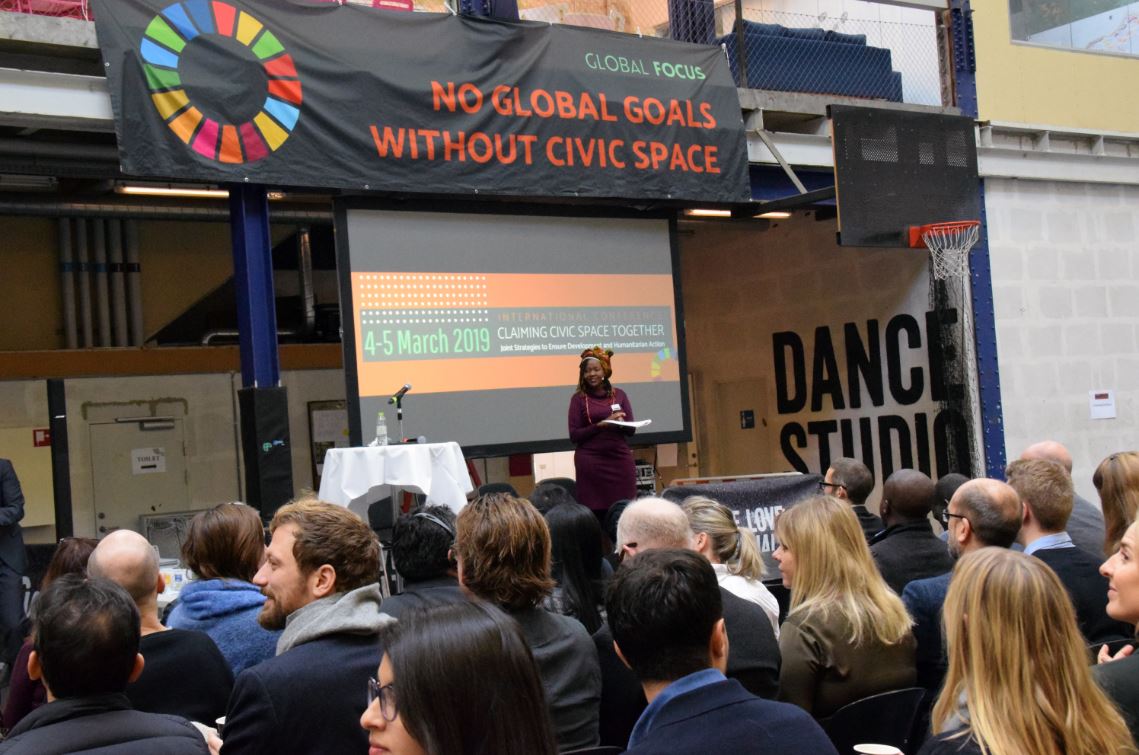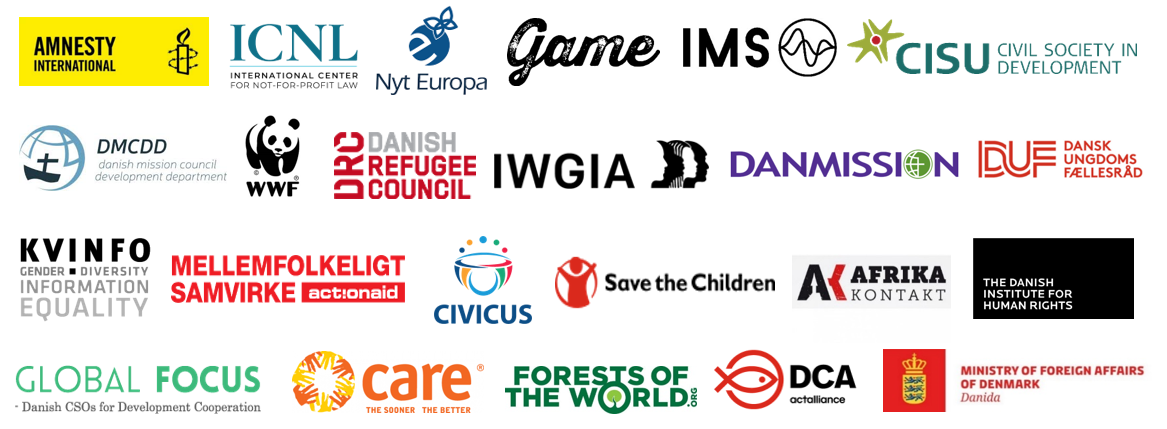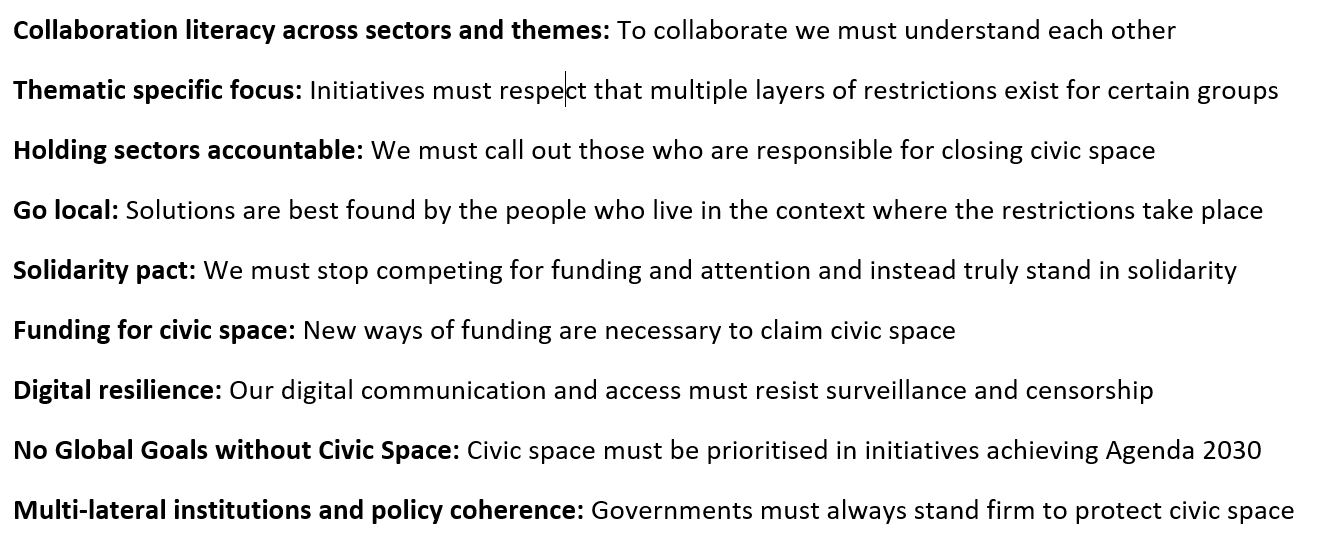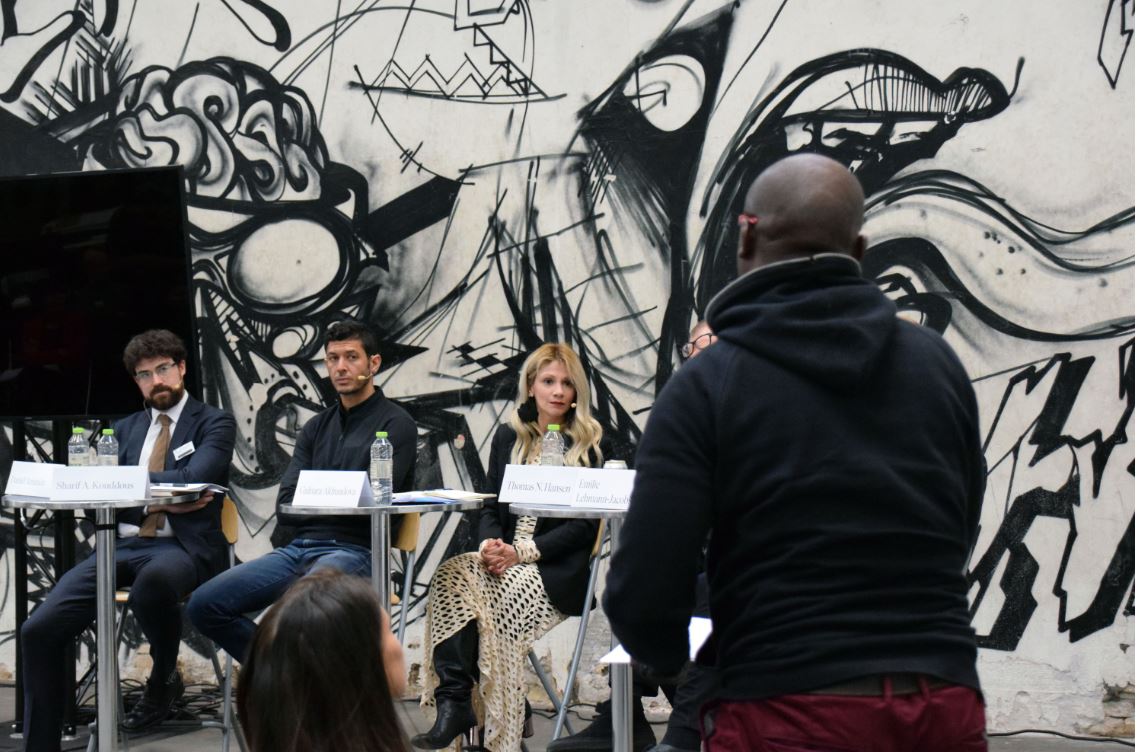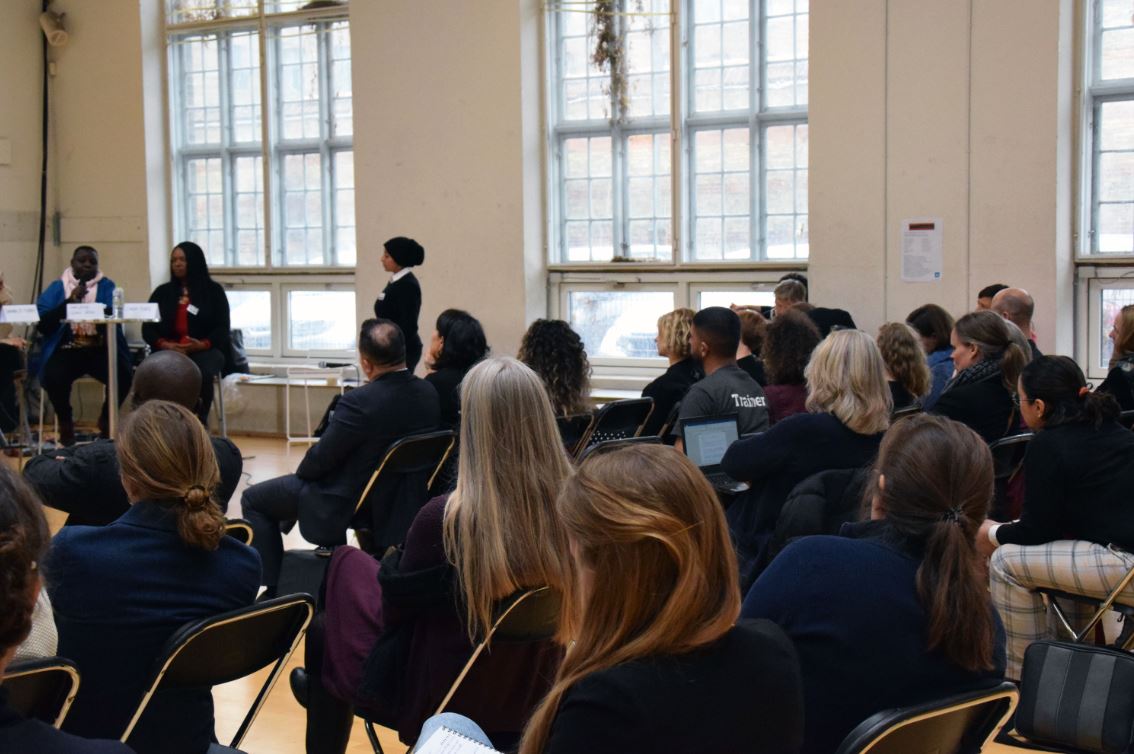International Conference: Claiming Civic Space Together
Global Focus, partners and the Danish Ministry of Foreign Affairs hosted a two-day international conference: “Claiming Civic Space together – Joint strategies to ensure development and humanitarian action” on 4-5 March 2019 in Copenhagen at GAME. Over 300 people from over 40 countries around the world took part discuss the issue of closing civic space and together find ways forward to claim civic space. According to CIVICUS Monitor, only 4% of the world's population live in countries where people fully enjoy freedoms of expression, association and assembly - or in other words, enjoy civic space. The closing of civic space is a problem that affects most of the work done by civil society globally why the aim of the #ClaimingCivicSpace conference was to identify joint strategies across themes and sectors to ensure civic space.
Throughout the conference, it was underlined that the Global Goals (Agenda 2030/SDGs) cannot be achieved without civic space. Closing civic space has negative consequences for achieving all of the 17 goals, as explained in this illustration . The key message is that if civil society working to achieve the Global Goals are not able to continue their work due to closing civic space, it will be impossible to reach the Global Goals. Civil society is furthermore key to achieving the Leave No One Behind principle, as it is often those at greatest risk whom they work to empower and protect. And while gender equality and a human rights approach are cross-cutting principles to ensure all 17 Global Goals, goal 16 underlines the necessity of fundamental freedoms and especially target 16.10 focuses on civic space.
CO-ORGANISERS
SPEAKERS
The following profiles are a few of the people who spoke at the conference:
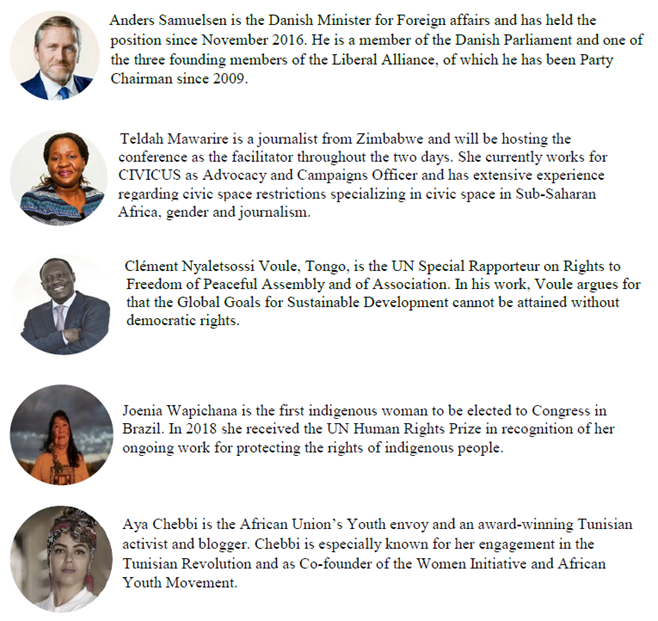
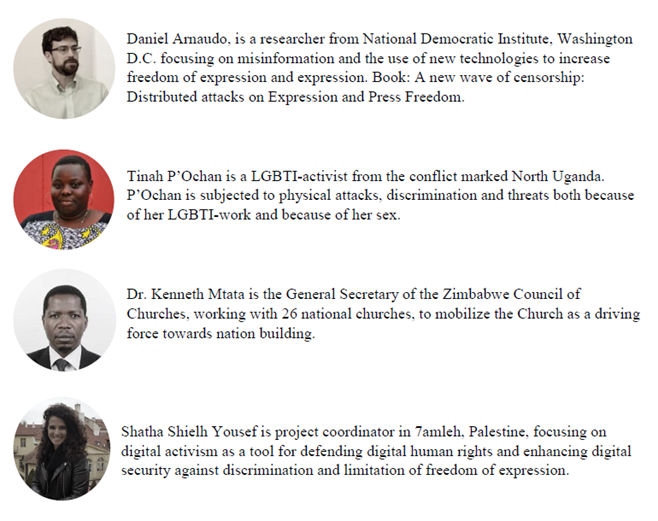
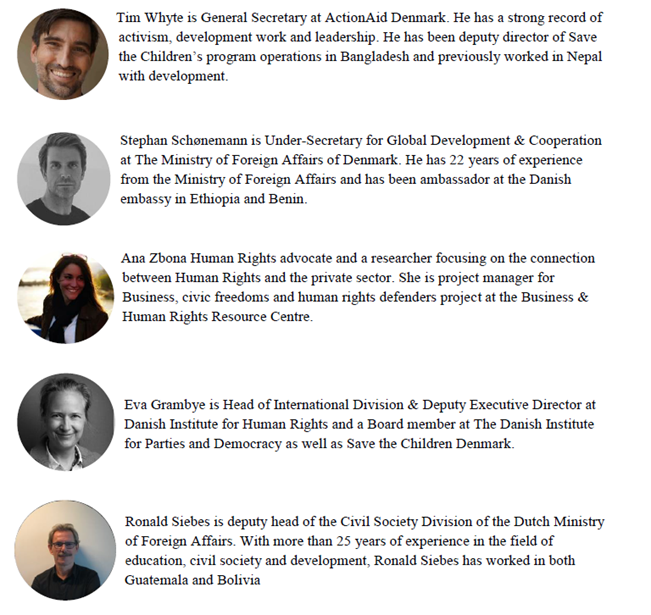
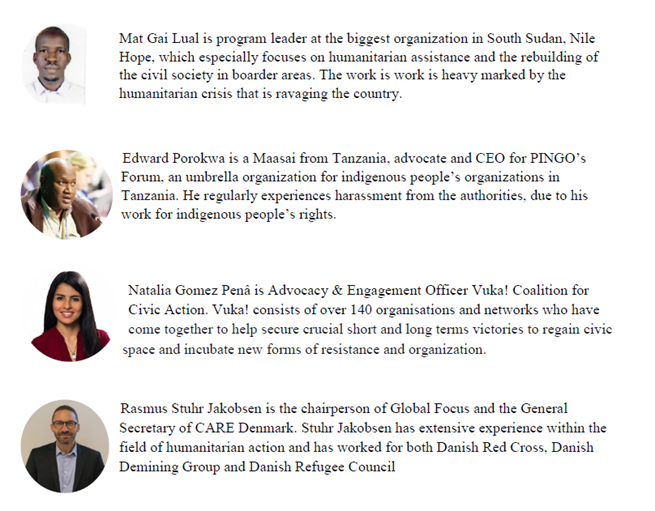
JOINT STRATEGIES
While thematic sessions, linking civic space to various aspects of the Global Goals, were the point of departure, the key objective was to find joint strategies and solutions across themes, areas and sectors to ensure civic space globally and acknowledge the importance of civic space to carry out development and humanitarian work worldwide.
The following joint strategies were identified and participants signed up to be part of collaborating around these strategies:
If your organisation or institution is interested in collaborating with participants at the conference around one of several of the joint strategies, please contact Sara Brandt at
Please find recommendations on how to ensure civic space to Danish actors here. Developed by Global Focus and members through inputs from partners and experts from around the world and own experiences.
CONFERENCE AGENDA


THEMATIC SESSIONS
Thematic sessions were organised by Global Focus members and focused on civic space from a variety of thematic lenses particularly from the perspective where the organisations and their partners have extensive expertise from their work. This diversity of topics underlines how closing civic space is a problem for civil society working with many different themes and how relevant it is for many different sectors.
Day 1
-
#MediaToo: Shrinking Space for Independent Media and Freedom of Expression – How the use of new online technologies are closing the space for independent media & freedom of expression – and how we respond
Over the last few years, the world has seen how both authoritarian governments and powerholders have used the internet and social media to curtail access to information and freedom of the press through various tactics. By combining tactics such as blocking content with automated social media accounts, online harassment/trolling of human rights defender and spreading partisan or outright disinformation, they have stifled discourse in civil society and eroded trust in independent news media – the bedrock of democracy. An informed public with access to information that can hold decisionmakers to account is a precondition for fulfilling the Sustainable Development Goals. In this session we will discuss how these various methods to close the space for freedom of expression, independent media and civil society are often used in conjunction with each other. Through examples of cases and various countries, we will examine how public and private sector entities, broader civil society including media and democratic governments can respond.
-
How to Engage with Religious Actors in Building and Defending Civic Space
A large majority of people around the world consider themselves religious, and the voices of religious leaders are powerful and influential. In this workshop we will look deeper into and discuss the role and strategies of faith actors in building and defending civic space. Faith actors play an important role in building and protecting fair and free civic space for all – through i.a. value formation for participation and inclusion, holding authorities to account and protection of human right defenders. Also, when civic actors are squeezed out, faith actors are often among the last to be fully silenced. So, faith actors often play under-recognized, fundamental roles for civic space – whether hampering or conducive roles – and attention to and engagement with these actors can therefore be key for a sustainable free and fair civic space for all.
-
Private Sector and Civic Space
Since 2015, more than 1400 attacks on individual citizens and organisations working on human rights issues related to business operations have been recorded, drawing important attention to the evolving sphere of risks towards fundamental rights. Despite this, recent research points towards the potential of businesses as a defining ally for civil society in speaking up for fundamental freedoms and access to justice, as both sectors benefit from the shared space. The objective of the workshop is to further reflect upon the current trends and developments and facilitate an engaged discussion on how business can respect, promote and support civic space and human rights defenders. The discussion will be initiated through case examples and insights from businesses which haves already taken steps towards promoting the agenda, and invite you to come and take part in discussion on how a multi-sector approach can support and strengthen collaboration on this agenda.
-
Gender and LGBTQI+ Specific Challenges and Responses
Women human rights defenders and LGBTQI+ defenders, as well as others fighting for gender equality, face multiple layers of civic space restrictions because they challenge existing gender norms and behaviors that enable sexism and gender discrimination. They face criminalization of advocacy work, social stigmatization, public slandering, threats of rape and other gender-based intimidations for engaging in civic action and being outspoken. Radical conservative voices are physically and verbally attacking them for this activism with claims that women should stay silent in their homes and not interfere with politics, which is seen as a male domain. The workshop will discuss what kind of counter tactics are necessary to deal with this double layered harassment faced by people fighting for LGBTIQ+ rights, women’s rights and gender equality. We have invited people who are experiencing civic space restrictions because of who they are and the human rights they fight for to share their thoughts on what we can all do to counter this trend.
Day 2
-
Children and Young People as Civic Actors
The thematic workshop “Children and Young People as Civic Actors” will work towards developing concrete strategies to protect and expand civic space with point of departure in the experiences and ideas of children and young people and their organisations and movements. To contribute to the Agenda 2030 commitment to leaving no one behind and the SDG 16 commitment to promote peaceful and inclusive societies, we will focus on strategies for children and youth to protect and expand civic space for dissenting voices and excluded groups, which often face multiple layers of restrictions and pressure. The workshop will also develop concrete strategies for how children and young people can be better supported by broader civil society actors as well as development partners and private sector actors. The workshop will be interactive and will present multiple youth voices from around the world as well as facilitate cross-generational collaborations.
-
Civic Space for Environmental and Indigenous Human Rights Defenders
Hear first-hand stories from brave environmental and indigenous human rights defenders who have risked everything to defend their land and rights. At this workshop, you can hear about their challenges and participate in the following discussion on how we together as civil society, government representatives, human rights defenders and private sector can strengthen our collaboration in support of environmental and human rights defenders around the world.
-
The Role of National Human Rights Institutions
Strenghting Structural Responses to Violations Faced by Human Rights Defenders promoting and protecting human rights are increasingly under threat. National human rights institutions have a formal mandate to promote and protect human rights in their countries, including the rights and freedoms of human rights defenders. But how have national human rights institutions engaged and used their mandates for effective national responses? How can the 2030 Agenda's follow up and review processes become an effective platform to monitor and promote the rights of human rights defenders? Can national human rights institutions work more with others and human rights defenders themselves to secure structural responses to the violations and abuses faced by human rights defenders? How can the international human rights system be used and strengthened in this regard?
-
Civic Space in Humanitarian Action
Data strongly suggests that the space for civil society organizations to operate effectively in a humanitarian crisis is shrinking. The interlinkages between civic space action and humanitarian action are often not clear, at times misunderstood or seen as contradictory. This workshop will discuss and explore the linkages and challenges between civic space and humanitarian action in humanitarian contexts where civic space is under attack. How do repressive laws and regulations on freedom of association, assembly and expression impact on humanitarian action? What limitations does a shrinking civic space have on humanitarian actor’s, including CSOs, ability to deliver humanitarian assistance? What role does humanitarian actors have in protecting civic space? And do the principles of humanity, neutrality, impartiality and independence conflict with a human-rights based approach? This workshop will explore to what extent the distinctions can meet in joint efforts to meet needs more effectively while counterattack repressive policies and violations of basic rights in humanitarian contexts.
- Oprettet den .

